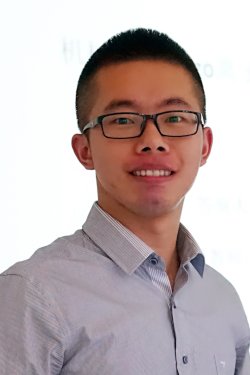Qiancheng Zhao
2023 Regional Award Finalist — Post-Doc

Current Position:
Associate Research Scientist
Institution:
Yale University
Discipline:
Neuroscience

Current Position:
Associate Research Scientist
Institution:
Yale University
Discipline:
Neuroscience
Recognized for: Exploring how our brain senses internal states, such as blood pressure fluctuations, food digestion, and breathing rhythms in a process called interoception. Zhao has characterized the vagal sensory neurons, a key body-brain axis in interoception, responsible for sensing numerous and diverse body signals and relaying them to the brain with incredible precision. Zhao’s work has demonstrated that vagal sensory neurons employ a combinatorial strategy to code the essential features of an interoceptive signal, including the ‘visceral organ’, ‘tissue layer’, and ‘sensory modality’, thus facilitating effective body-to-brain communications.
Areas of Research Interest and Expertise: Sensory neurobiology, interoception, mechanosensation, body-brain axis.
Previous Positions:
Research Summary:
Just like our bodies can sense external feelings, like the softness of a cozy blanket or the pain of an accidental encounter with a hot pan, they can also sense things that happen internally. Qiancheng Zhao, PhD studies the molecular and cellular pathways that underlie how our bodies sense internal states, like changes in blood pressure and food digestion, in a process called interoception. To relay internal signals to the brain, our sensory system needs to detect and convert mechanical and chemical body cues into electrical signals that can be transmitted and interpreted by the brain. Zhao’s work has been instrumental in characterizing the structure of one major protein, the Piezo ion channel, responsible for sensing and transducing mechanical signals.
Zhao continued by investigating vagal sensory neurons (VSNs) which form a key connection between the body and the brain. As such, VSNs transmit a large amount of information to the brain from the respiratory, cardiovascular, gastrointestinal, endocrine, and immune systems. For the brain to interpret complex body signals, it must get information about the internal organ initiating the signal, the tissue layer of the organ initiating the signal and the type of stimulus that prompted the signal. Through a combination of high-throughput sequencing techniques and imaging of sensory neurons, Zhao has shown that VSNs genetically encode each of these features separately. In other words, VSNs use a combinatorial strategy to code and bundle information from the organs, tissues, and stimuli, allowing for effective communication of internal cues in a precise and timely manner.
Zhao’s work has given us new insight into the delicate and precise nature of these body-brain interactions, creating a foundation to explore how different states like fear or hunger direct the brain to meet the body’s needs.
“This award is a tremendous encouragement for me. I will continue to forge ahead on the path of scientific research, exploring how we perceive the world. May the force be with us.”
Key Publications:
Other Honors:
| 2023 | Warren Alpert Distinguished Scholar Awards, Warren Alpert Foundation |
| 2023 | AHA 2023 Career Development Award, American Heart Association |
| 2018 | Kavli Postdoctoral Fellowship, Yale University |
| 2018 | Youth Excellent Thesis Award, The Chinese Society for Cell Biology |
| 2017 | Outstanding Graduates, Beijing |
| 2017 | Outstanding Dissertation, Tsinghua University |
In the Media:
Nature News & Views – Force-activated ion channels in close-up
Nature News & Views – A mechanism for touch
The Nobel Prize in Physiology or Medicine – Scientific Background-Discoveries of receptors for temperature and touch (Refs 75, 77, 78)